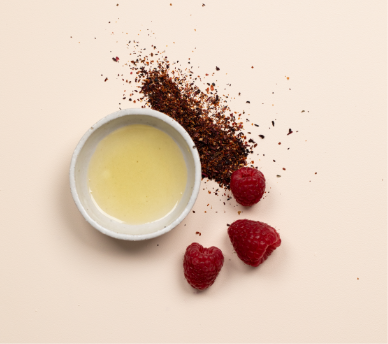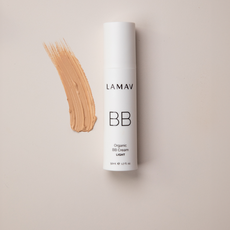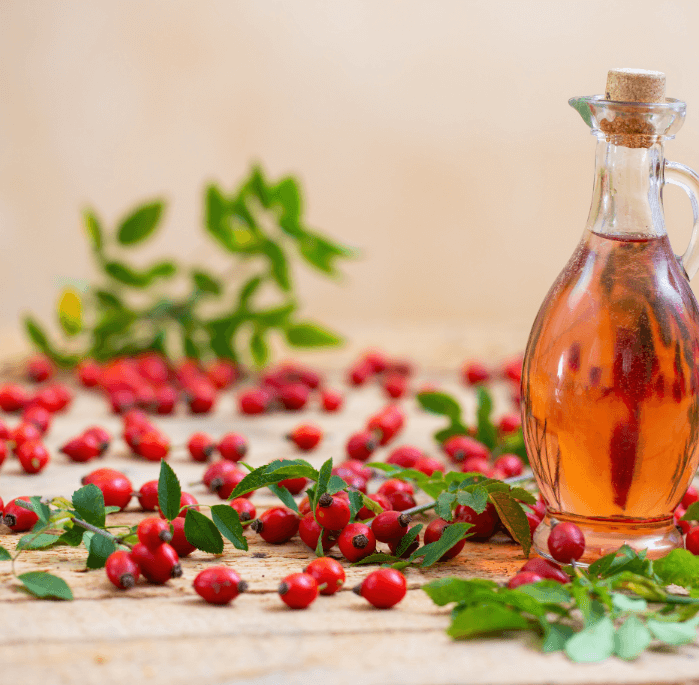The Benefits Of Rosehip Oil
While the beauty industry has only recently started noticing the benefits rosehip oil has on our skin, the Andean Indians of Chile recognized the healing properties of rosehips generations ago and have been using it as remedy for many skin issues ever since.
So what is it that makes these little fruits so special? Although rosehip oil can be extracted from many different species of roses, the most effective oils are extracted from two specific kinds – Rosa aff. rubiginosa and Rosa moschate, which are predominantly grown in Chile. After the rose has bloomed and the petals have fallen off, the fruits are cold pressed or slowly cooked to separate the oil from the seeds. Although the cold-pressed extraction is more expensive, the oil that is obtained from it, is more potent since the nutrients it in are not altered/destructed by the heat. Some of these nutrients include: essential fatty acids (omega 3, 6 and 9), vitamin E, vitamin C, vitamin A, and powerful antioxidants, like beta-carotene and lycopene. After you’ve read all this, you won’t be surprised that the list of benefits of rosehip oil is quite long. Let’s see it!
Why Do We Use Rosehip Oil?
Rosehip oil is light and non-greasy, hence well-tolerated by all skin types (and, yes – including oily and acne-prone skin!). Unlike some heavier oils, like tamanu oil and shea butter, rosehip oil is easily absorbed and leaves no greasy residue on the skin surface. It has shown excellent results in the treatment of many skin concerns, but below are some of the most common:
- Dry/Dehydrated Skin
Essential fatty acids found in rosehip oil, such as linoleic acid (omega-6) and linolenic acid (omega-3), are perfect re-hydrating the skin and restoring its natural lipid layer. Rosehip oil will not only moisturize, but will also lock the moisture in, keeping your skin dewy and fresh.
- Acne
As we’ve already mentioned, rosehip oil is not heavy and gets absorbed pretty quickly, therefore it’s perfect for oily/acne-prone skin. In addition to this, rosehip oil contains trans-retinoic acid, known for its anti-microbial properties.
Another reason why rosehip oil is great for people struggling with acne is that it has high vitamin C content. Vitamin C has skin lightening properties, hence will fade pigmented spots from already healed blemishes naturally. Even people who do not normally tolerate oil-base products, have reported improved skin condition after including rosehip oil into their daily skin care routine.
- Wrinkles
As you probably know, free-radicals are the main culprits for premature aging. Abundant in antioxidants, rosehip oil protects the cells from oxidative stress, keeping your skin healthy, youthful and wrinkle-free.
At the same time, vitamin C stimulates the production of collagen and restores skin’s elasticity.
The oil owes its effectiveness to the small-size molecules of vitamin A, which penetrate the skin barrier and reaches the deeper layers of the skin – in those deeper layers is where collagen is produced.
- Pigmentation
When exposed to UV rays, the skin suffers the consequences of photo aging – consequences that range from discoloration and wrinkles to hypersensitivity and dehydration. The combination of bio-active natural ingredients in rosehip oil combats all these consequences simultaneously. Vitamin C in particular, brightens the skin, evens the skin tone and boost skin’s clarity.
- Scars
The essential fatty acids in rosehip oil are emollients, and emollients promote skin regeneration. Through regular use of rosehip oil, scars from acne and stretch marks become less prominent. Rosehip oil can also be applied to scars from cuts, chicken pox, burns, post-surgical scars, etc.
Always look for 100% pure organic oils! This is the ultimate guarantee their incredible properties are fully preserved! Your skin will appreciate it!
How to Use Rosehip Oil
First of all, make sure to store it in cool and dark place, because, just like any other oil, if not stored properly, rosehip oil can become rancid.
Now let’s see how to use it! Put a few drops of the oil in your hand and rub it between the palms for a few seconds, to warm it up a bit. Then, gently massage your face and neck area, until fully absorbed.
Rosehip oil can be used alone or added to your favourite moisturizer. For best results, always apply the oil to damp skin after you have cleansed it. This way, it will lock the moisture in and leave your skin smooth and radiant.









